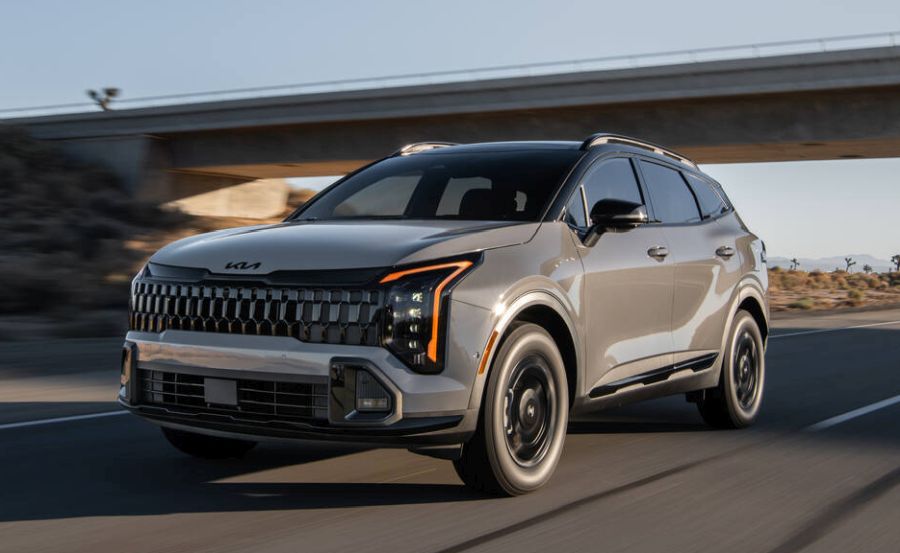Online Car Buying, Made Easy.
Buying through OnlineAuto means you'll pocket savings with our fleet buying power, enjoy the piece of mind and convenience of buying through OnlineAuto and all of this at no cost to you!
OnlineAuto Car Buying Power
We buy thousands of cars every year. This means we have relationships with dealers across the country which allows us to drive your prices down.
Convenience and Piece of Mind
Buying your car with us means that you avoid the hassle and haggle of traditional car buying and all of our cars come with a full factory warranty!
We don't charge you for it!
Yep, that's right. We make our money through charging the winning dealerships a "Finders fee" for sourcing their sale.
We put savings back in your pocket
Total customer savings this year
$750,000+
Over $750,000 back in our customers' pockets-not the dealer's.
Recent Savings
Discover why these are our best selling cars.















Savings are based on the difference between the drive-away price quoted or paid by customers and the Manufacturer’s Drive Away Price
Customer Feedback
Read our customers' feedback.
Online auto is easy!
Zaydn has been quick to find what I wanted to purchase and made it happen with a $1500 saving. He’s helpful and polite and it’s been such an easy process.
Sarah K
Great service
I found dealing with Online autos easy and they did get a sharper deal on a vehicle then what I potentially could have gotten from the dealer by myself. I dealt with Seamus and found him very engaging...
Mick K
A pleasure to Deal with
I had the pleasure of dealing with Craig Nicholson and he was super helpful. I was kept informed the whole time and will definitely use this company again.
Belinda W
Highly recommended 10/10
Not only were they able to get me a great deal, Craig was also accommodating with tech advice when I was having difficulties deciding which car I might purchase. The whole process was smooth and seaml...
Grenouille G
Good price, fast delivery, and highly re...
Extremely happy. Zaydyn was a pleasure to deal with, fast efficient and a great communicator. He sourced the car we wanted with a quick delivery time, and a far better price than i had been able to ac...
Gary J
Awesome!
Seamus or James Hilton was the best, saved us thousands on our new Subaru Outback
Peter S
Great!
Seamus was great to deal with. This is my second car I have bought through OnlineAuto. Made a great saving. Would recommend to anyone.
P M
Great experience from Seamus
Seamus and Online Auto team was exceptional in procuring a new car at a lower price than advertiseed. The car is still 3 months away, so cannot comment on how it went until we recieved the car.
Ibrahim I
Very satisfied customer
Online Auto made buying a new car a seamless experience. I felt very supported and they got me a very good deal for the exact car I was after. Would definitely recommend them to anyone purchasing a ne...
Susan S
Great Customer Service
We had Seamus assist us in purchasing our new car, and he was easy to communicate with, very available and polite. This resulted in us successfully completing the transaction within a week of working ...
Sam S
Online auto is easy!
Zaydn has been quick to find what I wanted to purchase and made it happen with a $1500 saving. He’s helpful and polite and it’s been such an easy process.
Sarah K
Great service
I found dealing with Online autos easy and they did get a sharper deal on a vehicle then what I potentially could have gotten from the dealer by myself. I dealt with Seamus and found him very engaging...
Mick K
A pleasure to Deal with
I had the pleasure of dealing with Craig Nicholson and he was super helpful. I was kept informed the whole time and will definitely use this company again.
Belinda W
Highly recommended 10/10
Not only were they able to get me a great deal, Craig was also accommodating with tech advice when I was having difficulties deciding which car I might purchase. The whole process was smooth and seaml...
Grenouille G
Good price, fast delivery, and highly re...
Extremely happy. Zaydyn was a pleasure to deal with, fast efficient and a great communicator. He sourced the car we wanted with a quick delivery time, and a far better price than i had been able to ac...
Gary J
Awesome!
Seamus or James Hilton was the best, saved us thousands on our new Subaru Outback
Peter S
Great!
Seamus was great to deal with. This is my second car I have bought through OnlineAuto. Made a great saving. Would recommend to anyone.
P M
Great experience from Seamus
Seamus and Online Auto team was exceptional in procuring a new car at a lower price than advertiseed. The car is still 3 months away, so cannot comment on how it went until we recieved the car.
Ibrahim I
Very satisfied customer
Online Auto made buying a new car a seamless experience. I felt very supported and they got me a very good deal for the exact car I was after. Would definitely recommend them to anyone purchasing a ne...
Susan S
Great Customer Service
We had Seamus assist us in purchasing our new car, and he was easy to communicate with, very available and polite. This resulted in us successfully completing the transaction within a week of working ...
Sam S
Looking for a particular make?
Discover the latest tech, road safety and fuel economy, currently found in show rooms and car dealerships around the country.
Want to explore more on body type?
Explore which is perfect vehicle for your lifestyle.
Car broker questions?
Here are some of our frequently asked questions.
A good car broker will spend time getting to know what you’re after, and then will go out to dealerships to find who has your car in stock. A great car broker will help negotiate a deal on your behalf, potentially bringing down the price and bringing forward delivery dates.
This varies from broker to broker, but at OnlineAuto.com.au we charge no fees for our service. Our referral fee is paid to us by winning dealer that we source your car from and is included in the price of the car, covering procurement and delivery management. It also ensures you have a dedicated car buying specialist from beginning of the process to finally having the car delivered to your front door.
If you want to save time, hassle and money, it’s a great idea to consider using a car broker to help you buy your new car.

The car broker for new cars
If you're looking to buy a new car but don't know where to start, using a car broker like OnlineAuto.com.au can help.
A good car broker should spend time getting to know what vehicle you're after, offering advice on your options and then will go out to dealerships to find who has your car in stock. A great car broker will even help negotiate a better deal on your behalf, potentially bringing down the price and bringing forward delivery dates.
At OnlineAuto, we have a team of experienced car buying specialists to help you get the best deal for the car you want. We like to say - you are likely to only do this once every 5 years, but we help people buy cars multiple times a day, everyday!
Get in touch with our friendly team of specialists today to help you get on the road in your new car, sooner.
Speak with out specialist










